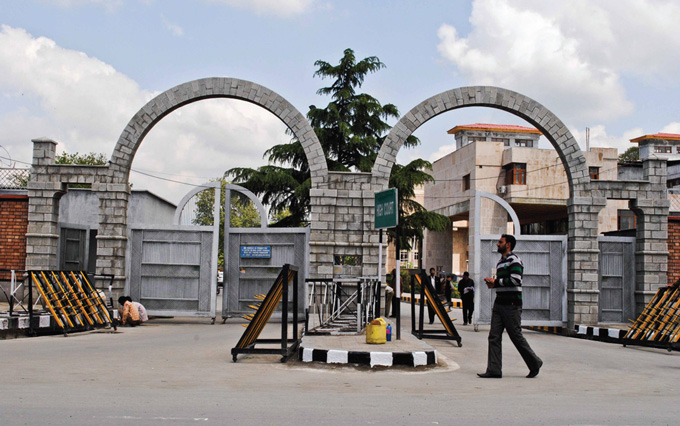OVER the last month, the Jammu & Kashmir High Court has quashed orders passed under the draconian Public Safety Act by the Jammu & Kashmir administration, ruling that it did not communicate the grounds of detention to the detained persons and hence violated fundamental rights guaranteed under the Constitution.
This was the court’s verdict in at least five habeas corpus petitions challenging preventive detentions after August 5, when the government scrapped the special status of the state and split it into two Union Territories.
All five detainees have been ordered to be released.
In a strong indictment, the High Court said that the orders violated Article 22(5) of the Constitution which mandates the government to communicate to the detained person grounds on which the order has been made — and afford them the earliest opportunity of making a representation against the order.
“The only precious and valuable right guaranteed to a detenu is of making an effective representation against the order of detention. Such an effective representation can only be made by a detenu when he is supplied the relevant grounds of detention, including the materials considered by the detaining authority for arriving at the requisite subjective satisfaction to pass the detention order. Since the material is not supplied to the detenu, the right of the detenu to file such representation is impinged upon and the detention order is resultantly vitiated,” the court said while quashing the orders.
The court’s observations will strike a chord among the over 300 petitions currently being heard of those detained since August 5.
Consider the cases:
In a verdict on December 16, the HC quashed the August 29 preventive detention order passed by the Srinagar District Magistrate related to detention of the petitioner Ajaz Hussain Rizvi. Its key reasoning: Authorities failed to mention in the detention order the petitioner’s right to make representation and this is an infraction of Article 22(5) and of the right under Section 13 of the Jammu and Kashmir Public Safety Act, 1978.
* On December 13, the court quashed the August 7 preventive detention order passed by the Kupwara District Magistrate related to detention of petitioner Nazir Ahmad Mir. The court said the government had not “spelt out as to what were ‘other incriminating material’” against the petitioner. “The detenu has thus been not supplied complete documents which affected his Constitutional rights guaranteed under Article 22(5),” the court ruled.
On December 9, the HC quashed the August 19 preventive detention order passed by the Srinagar District Magistrate related to detention of petitioner Imtiyaz Ahmad Pahloo on similar grounds.
Also, on December 3, the HC quashed the August 7 prevention detention order passed by the Kulgam District Magistrate related to detention of petitioner Parvaiz Ahmad Pala on the grounds that the detainee wasn’t supplied relevant grounds of detention, including material considered by the detaining authority for arriving at the detention order. “Since the material is not supplied to the detenu, the right of the detenu to file such representation is impinged upon and the detention order is resultantly vitiated,” the court said.
* On November 8, the HC quashed the August 20 preventive detention order passed by the Srinagar District Magistrate related to the petitioner Manzoor Ahmad Sheikh who was admitted bail by a trial court in a case registered by the Parimpora police station. The FIR formed the basis of the preventive detention, according to the court records.
The HC observed: “Since the detenu was released on bail in the FIR that formed the baseline of the order of the detention, therefore, the question that arises for consideration is whether an order of detention could have been passed under such circumstances? The answer to this question is an emphatic ‘No’,” the court said.
The court underlined: “Life and liberty of the citizens of the State are of paramount importance. A duty is cast on the shoulders of the Court to enquire that the decision of the Executive is made upon the matters laid down by the Statute and that these are relevant for arriving at such a decision. A citizen cannot be deprived of personal liberty, guaranteed to him/her by the Constitution, except in due course of law and for the purposes sanctioned by law.” (indin express)


Comments are closed, but trackbacks and pingbacks are open.